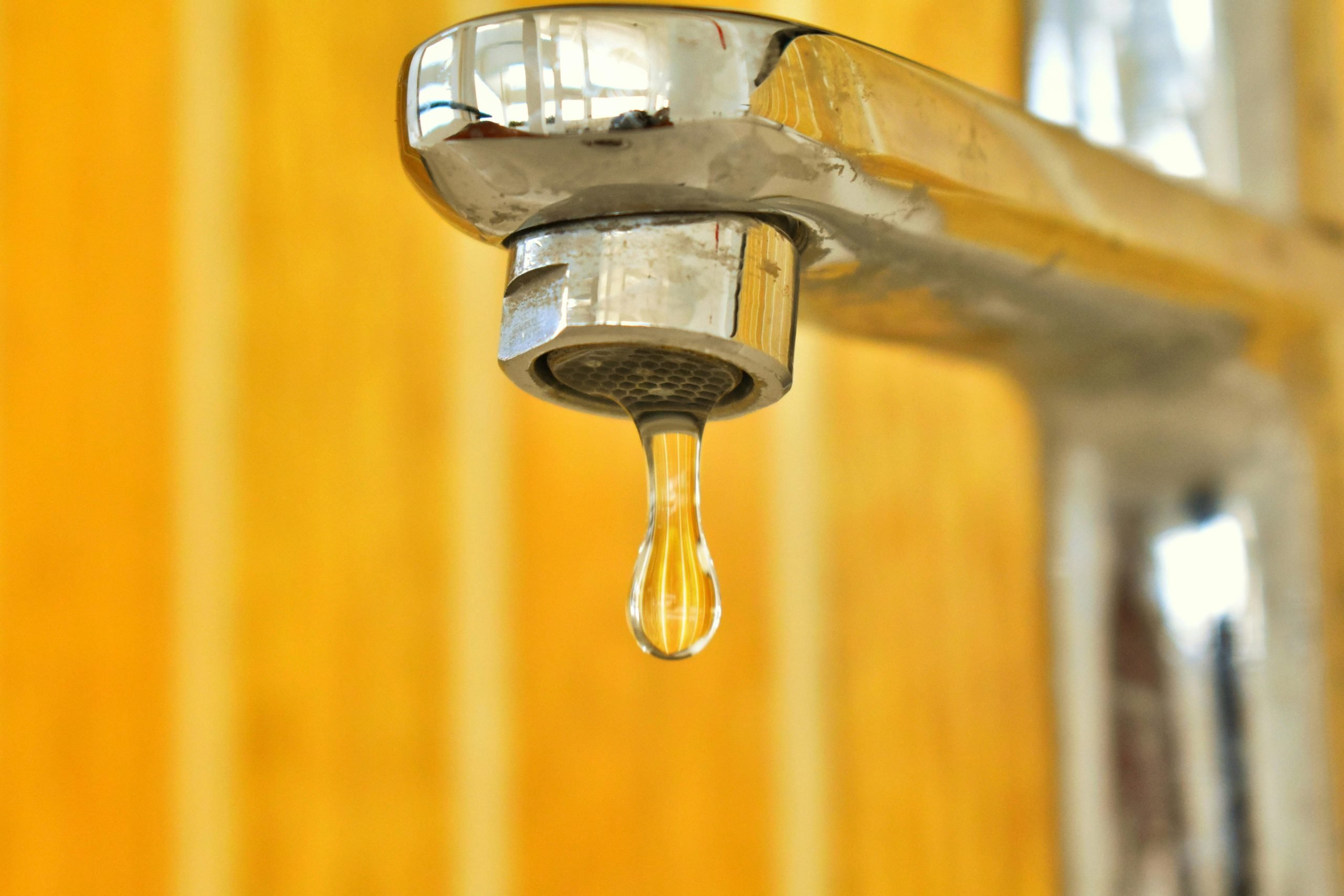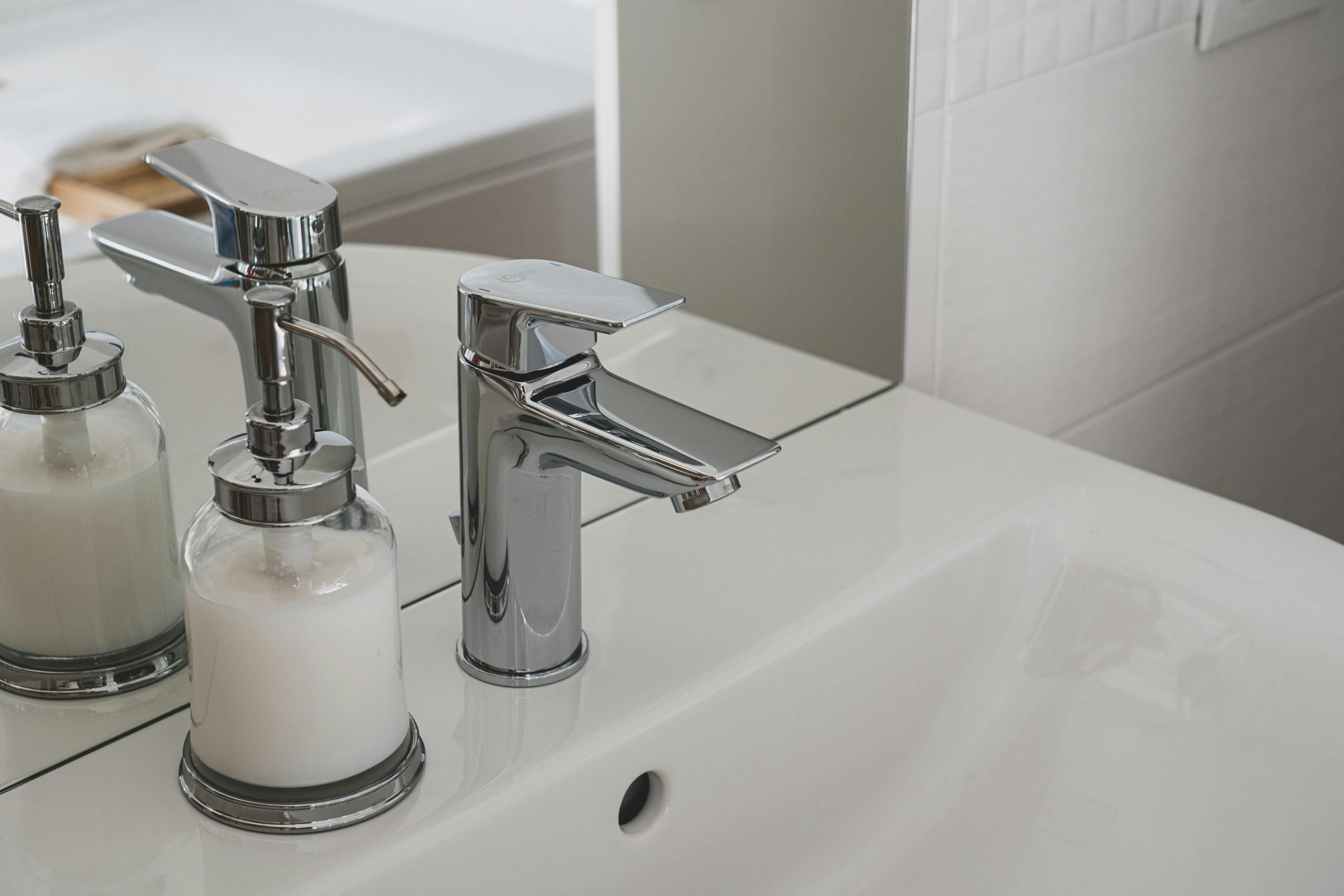Water quality is fundamental to maintaining a healthy plumbing system, yet it’s often overlooked until problems arise. From the moment water enters your home or business, its quality can impact the condition of your pipes, fixtures, and appliances. At Service by Scott, we understand the role that water quality plays in preserving the integrity of your plumbing infrastructure, which is why we’re dedicated to providing insights and solutions to help you maintain optimal performance.
In this guide, we’ll look into the importance of water quality for plumbing systems, exploring how factors such as chemical composition, pH levels, and contaminants can affect the health of your pipes. By understanding the connection between water quality and plumbing functionality, you can take proactive steps to safeguard your system against corrosion, scale buildup, and other common issues. Let’s embark on a journey to discover the intricacies of water quality and learn expert tips for ensuring the longevity and efficiency of your plumbing network.

Understanding Water Quality
Water quality is essentially the measure of how suitable water is for its intended purpose, whether that’s drinking, cooking, or, in this case, plumbing. It’s like giving your plumbing system a report card on how well it’s going to perform based on the water it’s dealing with. Let’s break down what water quality means and why it’s important for your pipes:
What is Water Quality?
Imagine water as a mixture of different ingredients, like a recipe. These ingredients include things like minerals, chemicals, and even tiny organisms. Water quality is about understanding what’s in that recipe and how it might affect your plumbing. Here are some key things to consider:
- Chemical Composition: Think of this as the flavor of the water. Just like how adding a pinch of salt or sugar changes the taste of your food, certain chemicals in water can affect its properties. Things like chlorine, fluoride, and even pesticides can sneak into your water and impact its quality.
- pH Levels: Ever heard someone talk about acidic or alkaline water? That’s all about pH levels. Water can be more acidic or more alkaline depending on the balance of certain compounds. Extreme pH levels can cause corrosion or buildup in your pipes, affecting their performance over time.
- Hardness vs. Softness: Water can also be classified as either hard or soft based on its mineral content. Hard water contains high levels of minerals like calcium and magnesium, while soft water has fewer minerals. The hardness of your water can influence how much scale builds up in your pipes and appliances.
- Presence of Contaminants: Just like you wouldn’t want a bug in your soup, you don’t want harmful contaminants in your water. These can include bacteria, viruses, and other microorganisms that might make you sick or cause problems for your plumbing.
Understanding these factors is like knowing the ingredients in your meal – it helps you anticipate how it will taste and how it might affect your body. Similarly, understanding water quality helps you anticipate how it might affect your plumbing system and what steps you can take to keep everything running smoothly.
Effects of Poor Water Quality on Plumbing
When it comes to your plumbing system, the quality of the water flowing through it matters more than you might think. Poor water quality can lead to a variety of issues that can compromise the integrity and functionality of your pipes and fixtures. Here’s a closer look at the effects:
Corrosion of Pipes
Imagine rust forming on a metal surface – that’s essentially what happens to your pipes when they’re exposed to corrosive elements in the water. Chemicals like chlorine and acids can eat away at the metal, leading to leaks, cracks, and the need for costly repairs or replacements.
Scale Buildup
Hard water contains high levels of minerals like calcium and magnesium. Over time, these minerals can form a hard, crusty buildup known as scale. This buildup can restrict water flow, clog faucets and showerheads, and damage appliances like water heaters and dishwashers.
Clogs and Blockages
Contaminants and sediments in the water can accumulate in your pipes, leading to stubborn clogs and blockages. From hair and soap scum in bathroom drains to food particles in kitchen sinks, poor water quality can exacerbate these issues and make them more difficult to resolve.
Decreased Appliance Lifespan
Plumbing appliances, like water heaters and dishwashers, rely on clean water to function efficiently. When constantly exposed to poor water quality, they have to work harder to do their job. This extra strain can lead to premature wear and tear, reducing the lifespan of your appliances and necessitating frequent repairs or replacements.
In essence, poor water quality isn’t just a problem for your health; it’s a problem for your plumbing system too. By understanding the potential effects, you can take proactive steps to protect your pipes and fixtures and ensure the longevity of your plumbing infrastructure.

Common Water Quality Issues
Water quality issues can manifest in various forms, from aesthetic concerns to potential health hazards. Understanding these common issues can help you identify and address problems with your water supply. Here are some of the most prevalent water quality issues:
Hard Water Problems
Hard water contains high levels of minerals, primarily calcium and magnesium ions. While not harmful to health, hard water can cause several issues within your plumbing system. These include scale buildup in pipes and fixtures, reduced water flow and pressure, and decreased efficiency of water-using appliances.
High Levels of Minerals or Sediments
Excessive levels of minerals or sediments in water can lead to turbidity, or cloudiness, which affects water clarity and appearance. Additionally, minerals like iron or manganese can cause staining on plumbing fixtures and laundry. Sediments can also contribute to clogs and blockages in pipes, reducing water flow and potentially damaging plumbing infrastructure.
Presence of Bacteria or Pathogens
Contamination by bacteria, viruses, or other microorganisms poses a significant health risk to consumers. Common sources of bacterial contamination include sewage leaks, animal waste, and agricultural runoff. Symptoms of waterborne illnesses may include gastrointestinal issues, fever, and respiratory problems.
Chemical Contamination
Chemical contaminants in water can originate from various sources, including industrial discharge, agricultural runoff, and household products. Common chemicals found in water include chlorine, fluoride, pesticides, and heavy metals like lead and arsenic. Prolonged exposure to these contaminants can have adverse health effects, ranging from skin irritation to neurological damage.
By being aware of these common water quality issues, you can address them and safeguard your health and plumbing system. Regular water testing, proper maintenance of plumbing fixtures, and installation of appropriate water treatment systems are essential to ensuring safe and clean water for your home or business.
Preventive Maintenance Strategies
Preventing water quality issues before they arise is key to maintaining a healthy plumbing system and ensuring clean, safe water for your home or business. Here are some preventive maintenance strategies you can implement:
Installing Water Filtration Systems
Consider installing a water filtration system to remove impurities and contaminants from your water supply. Depending on your specific needs, you can choose from various filtration options, including activated carbon filters, reverse osmosis systems, and UV sterilization units. A properly installed filtration system can improve water quality and protect your plumbing fixtures from damage.
Flushing the Plumbing System Regularly
Regularly flushing your plumbing system helps remove sediment buildup and prevent clogs in pipes and fixtures. To flush your system, open all faucets and let the water run for several minutes. This process helps clear out any stagnant water and ensures a steady flow of fresh water throughout your plumbing system.
Using Water Softeners
If you have hard water, consider investing in a water softener to reduce mineral buildup and extend the lifespan of your plumbing fixtures and appliances. Water softeners work by replacing calcium and magnesium ions with sodium ions, effectively “softening” the water and preventing scale formation in pipes and fixtures.
Proper Disposal of Household Chemicals
Be mindful of what you pour down your drains and toilets, as household chemicals can contaminate your water supply and harm your plumbing system. Avoid flushing non-biodegradable materials, grease, oil, and harsh chemicals down the drain. Instead, dispose of these items properly according to local regulations or recycling programs.
Implementing these preventive maintenance strategies can help you proactively address water quality issues and protect your plumbing system from damage. By taking proactive measures to maintain clean, safe water, you can ensure the longevity and efficiency of your plumbing infrastructure for years to come.

Professional Plumbing Services for Water Quality
When it comes to addressing water quality issues in your home or business, enlisting the help of professional plumbing services can ensure thorough and effective solutions. At Service by Scott, we offer expert plumbing services tailored to improve water quality and protect your plumbing system. Here’s how we can help:
Water Heater Maintenance and Flushing
Regular maintenance of your water heater is essential to ensure optimal performance and water quality. Our team at Service by Scott specializes in water heater maintenance, including flushing out sediment buildup and inspecting for any potential issues that may affect water quality. By keeping your water heater in top condition, we help ensure clean, safe water for your household or business.
Pipe Inspection and Repair
Leaks, cracks, and corrosion in your plumbing pipes can compromise water quality and lead to costly damage if left unchecked. Our experienced technicians utilize advanced inspection techniques, such as video camera inspection, to identify issues within your plumbing system. Whether repairing a small leak or replacing corroded pipes, Service by Scott has the expertise to restore your plumbing system to optimal condition.
Installation of Water Treatment Systems
For long-term water quality improvement, consider installing a water treatment system tailored to your needs. Service by Scott offers professional installation of water filtration, water softening, and water purification systems designed to remove impurities and contaminants from your water supply. Our team will assess your water quality concerns and recommend the most suitable treatment system to ensure clean, safe water for your home or business.
Emergency Plumbing Services
Water quality issues can arise unexpectedly, requiring prompt attention to prevent further damage to your plumbing system and property. At Service by Scott, we understand the urgency of plumbing emergencies and offer 24/7 emergency plumbing services. Whether you’re dealing with a sudden leak, burst pipe, or contaminated water supply, our team is here to provide swift and reliable assistance when you need it most.
By entrusting your water quality concerns to Service by Scott, you can rest assured that your plumbing system is in capable hands. Our professional plumbing services will help you maintain clean, safe water for your home or business, ensuring the health and well-being of your family or customers.

Tips for Maintaining Healthy Pipes
Keeping your plumbing pipes in top condition is essential for ensuring clean water and preventing costly repairs. Here are some simple yet effective tips for maintaining healthy pipes in your home or business:
Avoiding Chemical Drain Cleaners
Chemical drain cleaners may seem like a quick fix for clogged drains, but they can do more harm than good. These harsh chemicals can corrode your pipes over time, leading to leaks and other plumbing issues. Instead, opt for natural alternatives like baking soda and vinegar or use a drain snake to clear minor clogs.
Using Drain Strainers
Prevent debris and foreign objects from entering your plumbing system by using drain strainers in sinks, showers, and tubs. These inexpensive devices catch hair, food particles, and other solids before they cause clogs and blockages in your pipes.
Monitoring Water Pressure
Excessive water pressure can put unnecessary strain on your plumbing pipes, increasing the risk of leaks and bursts. Invest in a water pressure gauge to monitor water pressure levels regularly, and adjust your pressure regulator if necessary to maintain optimal pressure levels throughout your plumbing system.
Addressing Leaks Promptly
Even small leaks can quickly escalate into major plumbing emergencies if left unattended. Keep an eye out for signs of leaks, such as dampness or discoloration on walls or ceilings, and promptly address any issues you discover. Contact a professional plumber, like Service by Scott, to repair leaks and prevent further damage to your plumbing system.
By following these tips for maintaining healthy pipes, you can prolong the lifespan of your plumbing system and ensure clean, safe water for your home or business. Remember that prevention is key when it comes to plumbing maintenance, so don’t hesitate to take proactive measures to protect your pipes and fixtures.
Conclusion
In conclusion, the water quality in your plumbing system plays a crucial role in its functionality and longevity. From understanding the factors that influence water quality to implementing preventive maintenance strategies, taking proactive steps to maintain clean, safe water is essential for the health and well-being of your home or business.
By recognizing the effects of poor water quality, such as corrosion, scale buildup, and potential health hazards, you can better appreciate the importance of regular water quality testing and professional plumbing services. Whether you’re experiencing water quality issues or simply seeking to maintain healthy pipes, Service by Scott is here to help.
With over 30 years of experience serving Tyler County, Texas, and the surrounding areas, Service by Scott is your trusted partner for all your plumbing needs. From water heater maintenance and pipe inspection to installation of water treatment systems, our team of experts is dedicated to providing reliable and efficient solutions tailored to your specific requirements.
Don’t wait until water quality issues escalate into costly plumbing emergencies. Contact Service by Scott today to schedule a consultation and take the first step towards ensuring clean, safe water for your home or business. Let us help you maintain healthy pipes and peace of mind for years to come.
FAQs
How often should I test my water quality?
It’s recommended to test your water quality at least once a year, especially if you rely on well water or live in an area with known water quality issues. Additionally, consider testing after any plumbing system changes or if you notice changes in water taste, odor, or appearance.
What are the signs of poor water quality in my plumbing system?
Signs of poor water quality may include unusual taste, odor, or appearance of water, such as cloudiness, discoloration, or an unpleasant smell. Additionally, frequent clogs, stains on plumbing fixtures, and changes in water pressure can indicate underlying water quality issues.
Can I improve water quality on my own?
While simple measures like using a water filtration pitcher or installing faucet filters can improve water quality at the point of use, addressing underlying water quality issues often requires professional assistance. Service by Scott offers comprehensive treatment services tailored to your specific needs.
What should I do if I suspect a water quality issue?
If you suspect a water quality issue, the first step is to schedule a professional water quality test to analyze your water and address any issues. In the meantime, consider using bottled water for drinking and cooking until the problem is resolved.
How do I choose the right water filtration system for my home or business?
Choosing the right water filtration system depends on factors such as your water quality concerns, budget, and specific needs. Service by Scott offers a range of water treatment options, from basic faucet filters to whole-house filtration systems. for a consultation to determine the best solution for your situation.

